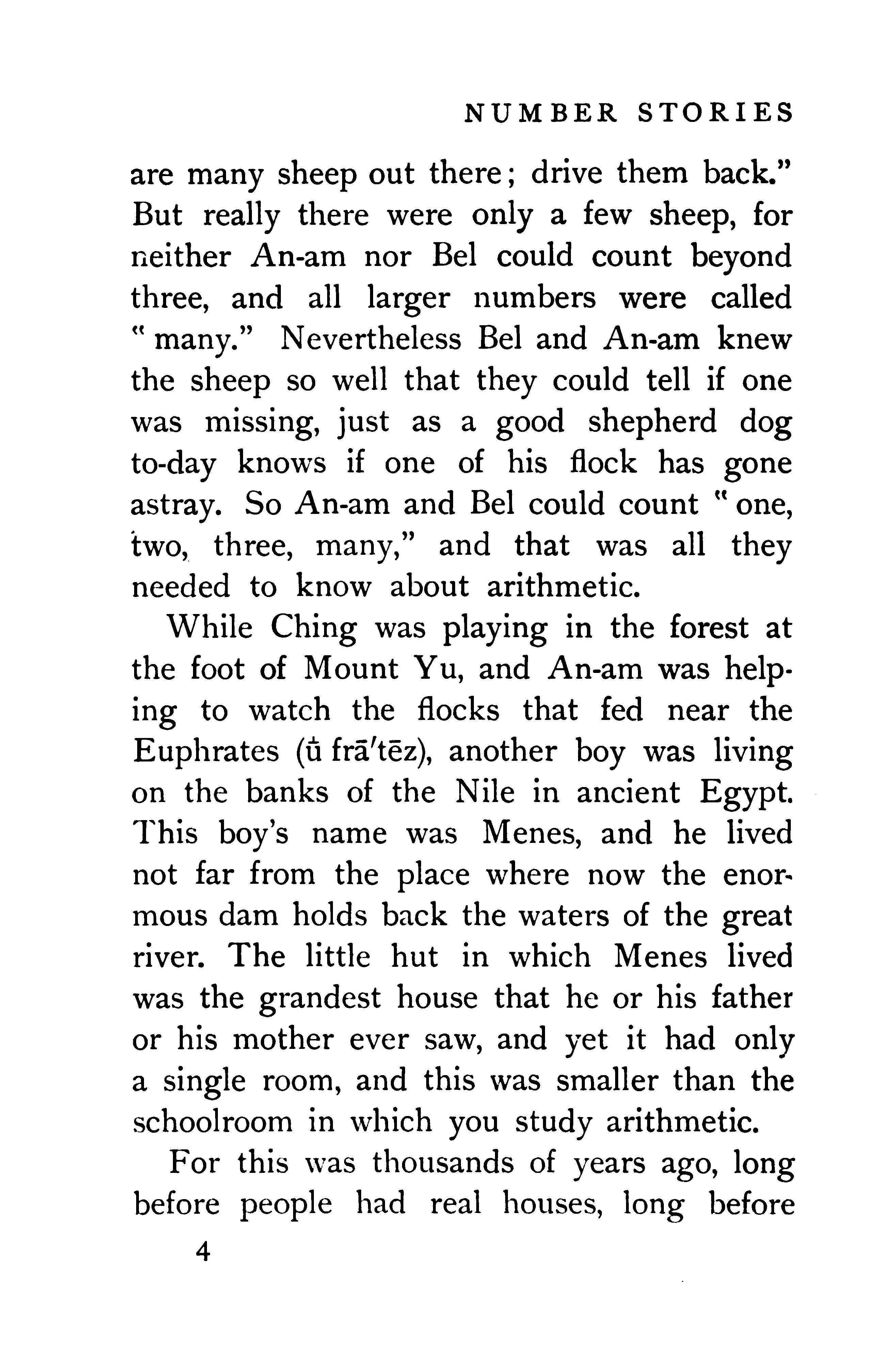
NUMBER STORIES

are many sheep out there ; drive them back. But really there were only a few sheep, for neither An-am nor Bel could count beyond three, and all larger numbers were called many." Nevertheless Bel and An-am knew the sheep so well that they could tell if one was missing, just as a good shepherd dog to-day knows if one of his flock has gone astray. So An-am and Bel could count one, two, three, many," and that was all they needed to know about arithmetic.
While Ching was playing in the forest at the foot of Mount Yu, and An-am was helping to watch the flocks that fed near the Euphrates (ù fr 't z), another boy was living on the banks of the Nile in ancient Egypt. This boy's name was Menes, and he lived not far from the place where now the enormous dam holds back the waters of the great river. The little hut in which Menes lived was the grandest house that he or his father or his mother ever saw, and yet it had only a single room, and this was smaller than the schoolroom in which you study arithmetic. For this was thousands of years ago, long before people had real houses, long before

OF LONG AGO
anyone knew how to read or write, long before the world had learned how to weave fine cloth, and long before men knew any other way to make a light than to rub two pieces of wood together until one of them was set on fire. Menes was proud of what he thought was the magnificent house in which he lived, although it was only a little hut, and he was glad to be able to say, We have a great many palm trees about our house," although there were only six. For Menes had heard his father and mother speak of one tree, of two trees, of three trees, and of four trees, but beyond that they simply said " a great many trees," for they had names for numbers only up to four, and all beyond that was a great many, just as we might speak of a great many apples.
When Ching and An-am and Menes grew to be men, and Ching became a king, and An-am became a manager of the Babylonian king's estates, and Menes became a great captain in the wars against the savages who lived in the south, Ching could only count to two, and An-am to three, and Menes to four, because this was as far as people in


their countries could count in the days when the world was only just coming out of savagery, when money was unknown, and when no one measured land or buildings or the things which they traded with one another.
But many hundreds of years later other boys played in the forest at the foot of Mount Yu, and they counted " one, two, two and one, two twos, two twos and one, a lot." The world was growing, and people needed larger numbers, and so they counted as far as two twos and one," which we call " five," and all beyond that was simply called a " lot." -

And other boys helped to tend the flocks of Babylon, and their fathers taught them to count by threes, - one, two, three, three and one, three and two, two threes, two threes and one, two threes and two, three threes, three threes and one, three threes and two, many," for they did not know a word for four, so they could n't say " four threes," and they just said " many " ; but of course they said another word, using the language of ancient Babylon. The world of Mesopotamia was growing older, and people needed more

